ADHD and Giftedness: Understanding Twice Exceptional (2e) Kids and Their Unique Needs

Parenting is a journey filled with unique joys and challenges, and for some, it involves navigating the intricate world of "twice exceptional" (2e) children. These are remarkable kids who possess both exceptional intellectual abilities (giftedness) and a learning difference or disability, such as ADHD. The combination can create a paradoxical profile where incredible potential meets significant hurdles, often making it difficult to pinpoint the root of their struggles. If you've been searching for answers about ADHD and Giftedness: Twice Exceptional Kids, you're in the right place. This article will shed light on what it means to be 2e, offering insights and strategies to help these bright, complex children thrive.
What Does It Mean to Be Twice Exceptional?
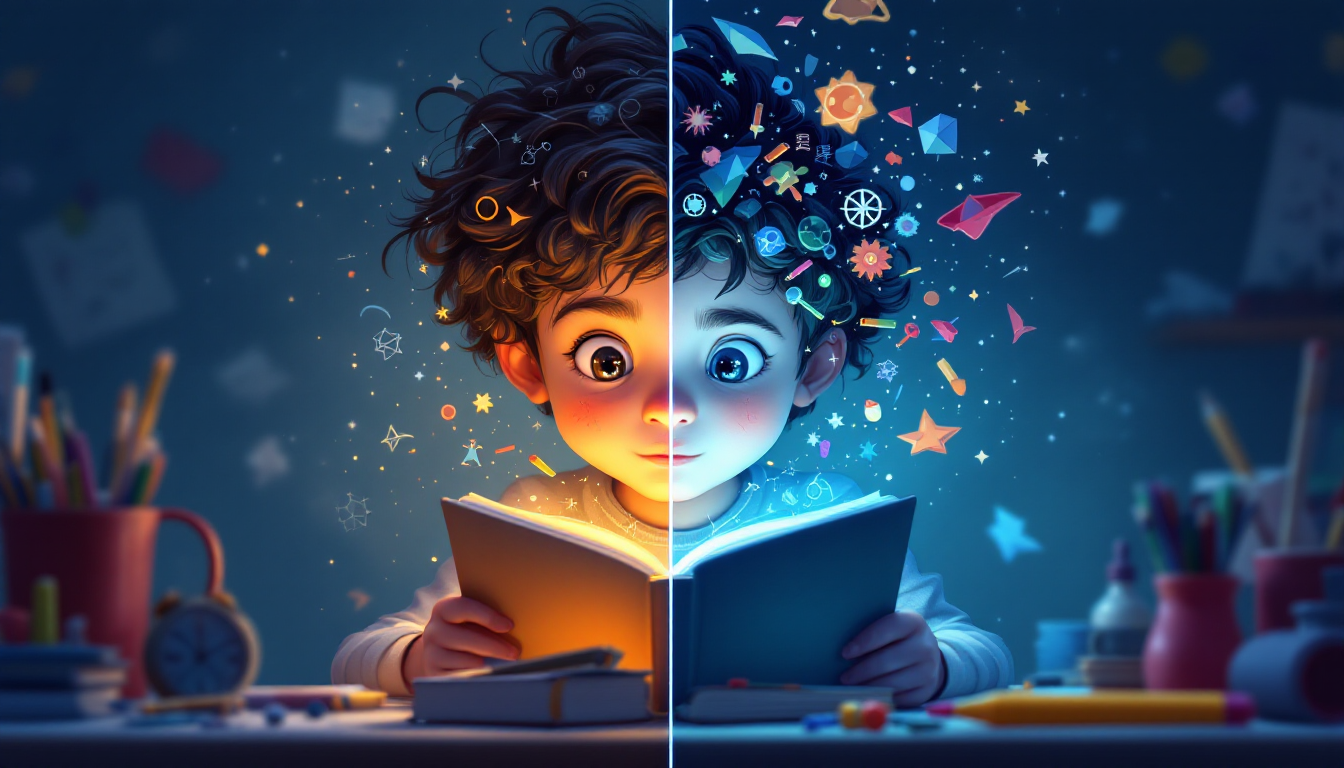
To truly understand what it means to be twice exceptional children, it’s crucial to delve into both the clinical and practical aspects of this unique profile. Simply put, 2e individuals are those who are identified as gifted and also have one or more disabilities or learning differences. While this can encompass a wide range of conditions, including learning disabilities, autism spectrum disorder, and emotional challenges, our focus here is on the intersection of giftedness and ADHD.
The co-existence of ADHD and giftedness can be incredibly complex. On one hand, you have a child with an exceptionally bright mind, capable of deep understanding, creative problem-solving, and advanced reasoning. On the other hand, ADHD brings challenges with executive functions like attention, impulse control, and organization. This interplay often creates a unique masking effect. For instance, a child's giftedness might allow them to compensate for their ADHD symptoms in academic settings for a time, leading to underdiagnosis or a delayed diagnosis. They might be able to grasp concepts quickly, but struggle with the sustained attention needed to complete assignments or the organizational skills required for long-term projects.
Conversely, the intense focus and hyper-interest often associated with ADHD can sometimes be mistaken for giftedness, especially if a child exhibits a deep dive into specific topics while neglecting others. Or, a gifted child who is bored by typical classroom instruction might display behaviors that mimic ADHD, such as fidgeting, inattention, or impulsivity, when in reality, they are simply under-stimulated. This asynchronous development, where a child's intellectual abilities are far ahead of their emotional or organizational maturity, is a hallmark of ADHD and Giftedness: Twice Exceptional Kids. They might be able to discuss complex scientific theories, but struggle to remember to pack their lunch or keep their room tidy. Recognizing this intricate dance between their strengths and challenges is the first step toward effective support.
Common Traits and Challenges of 2e Kids
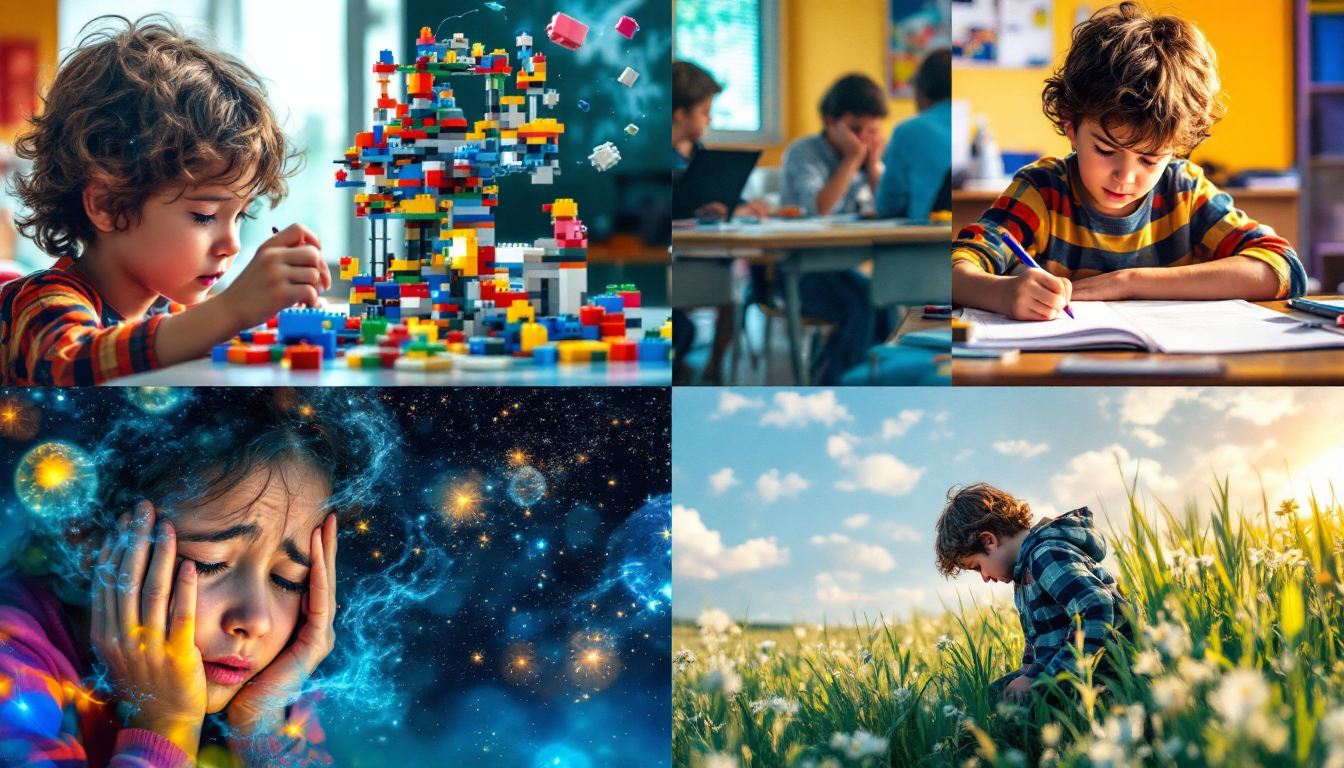
The profile of a twice exceptional child is often characterized by a fascinating mix of contrasting traits. Understanding these can help parents and educators better identify and support these unique learners. Here are some common signs of gifted ADHD and challenges that illustrate the complex interplay of their abilities and difficulties:
-
Behavioral Traits:
- Intense Curiosity and Hyperfocus (Gifted & ADHD): They can delve deeply into topics that genuinely interest them, often demonstrating an impressive breadth and depth of knowledge. However, this hyperfocus can make it difficult for them to shift attention to less engaging, but necessary, tasks.
- High Energy Levels and Fidgeting (ADHD): Like many children with ADHD, 2e kids often have boundless energy, which can manifest as restlessness or a need to constantly move.
- Impulsivity (ADHD): They might blurt out answers in class, interrupt conversations, or make hasty decisions without considering the consequences.
- Asynchronous Development (Gifted): Their intellectual abilities might be far more advanced than their emotional regulation or social skills. They might discuss complex concepts with adults but struggle with peer interactions.
-
Emotional Traits:
- Emotional Intensity and Sensitivity (Gifted): Gifted children often experience emotions more deeply than their peers. This can lead to heightened reactions to perceived injustices, perfectionism, and anxiety.
- Frustration and Low Self-Esteem: The gap between their intellectual potential and their ability to execute tasks due to ADHD symptoms can lead to significant frustration. They may feel like failures despite their high intelligence, impacting their self-esteem.
- Perfectionism (Gifted): Their high standards for themselves can lead to procrastination or avoidance of tasks they fear they cannot complete perfectly, exacerbated by executive function challenges.
-
Academic Traits:
- Inconsistent Performance: A defining challenge for gifted students with ADHD is their inconsistent academic performance. They might excel in subjects they find stimulating and struggle significantly in others, not due to lack of ability, but due to issues with attention, organization, or sustained effort.
- Underachievement: Despite high intellectual capabilities, their ADHD symptoms can lead to underachievement in school. They might fail to turn in assignments, struggle with time management on projects, or perform poorly on tests that require sustained attention, even if they understand the material deeply.
- Creativity and Divergent Thinking (Gifted): These children often exhibit exceptional creativity, approaching problems from unique angles and generating innovative ideas. This strength can be hindered by difficulties in organizing their thoughts or translating them into a coherent output.
- Executive Function Deficits (ADHD): This is a core challenge. They may struggle with planning, organizing, prioritizing, initiating tasks, working memory, and self-monitoring. These are the very skills needed to succeed in academic and daily life.
The conflicting traits create a unique set of challenges. A child who can solve complex mathematical problems in their head might struggle immensely with remembering to bring their homework to school. Their intense curiosity might lead to brilliant insights, but their executive dysfunction can make it nearly impossible to follow through on a multi-step project. Recognizing these nuanced characteristics is crucial for providing effective support to neurodivergent gifted kids.
Diagnosing and Misdiagnosing 2e Children
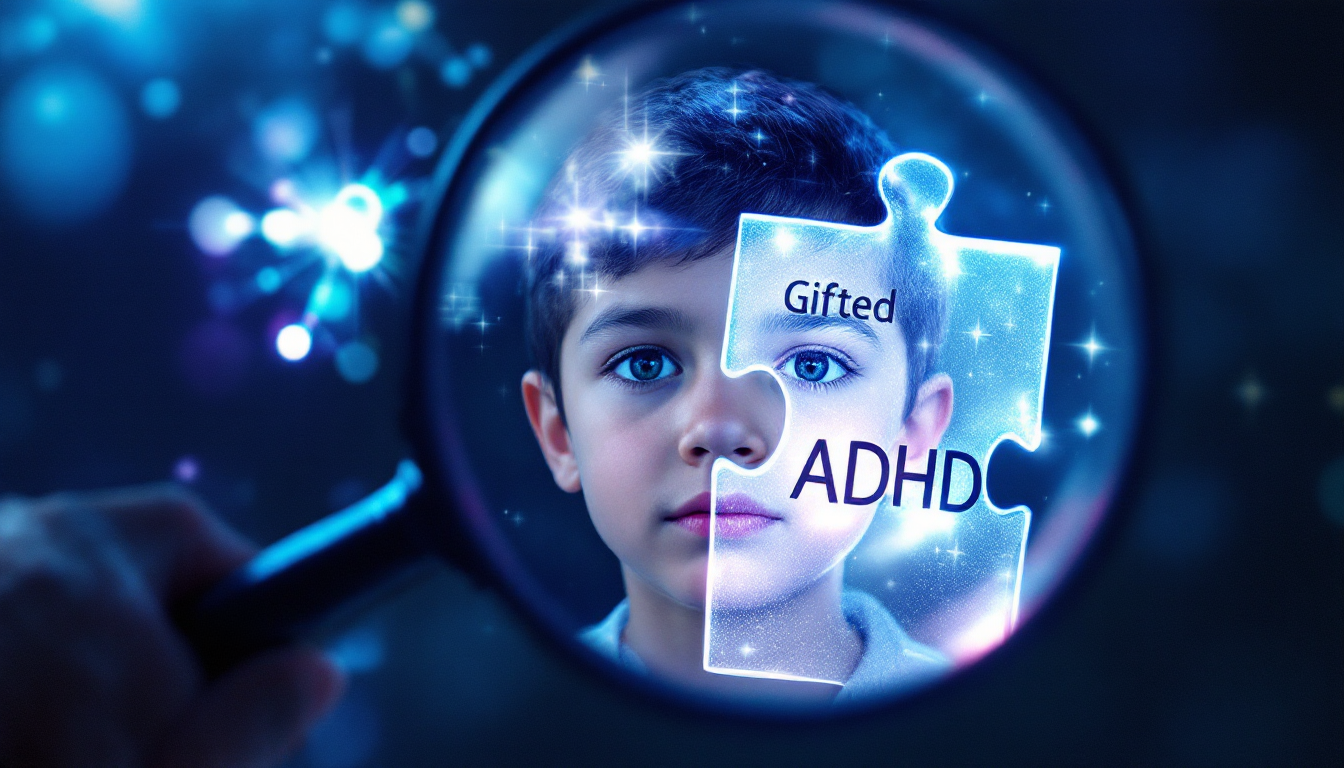
The intricate dance between giftedness and ADHD often complicates the diagnostic process, leading to common misdiagnoses for 2e children. It's not uncommon for either giftedness to mask ADHD or for ADHD symptoms to obscure a child's true intellectual potential.
One prevalent scenario involves mistaking giftedness for ADHD. A highly intelligent child who is bored in an unchallenging classroom environment might display behaviors that mimic ADHD. Fidgeting, daydreaming, interrupting, or not completing assignments could be misinterpreted as signs of attention deficits or hyperactivity, when in reality, the child is simply under-stimulated and disengaged. Their minds are moving at a faster pace than the curriculum allows, leading to frustration and a search for alternative stimulation.
Conversely, ADHD symptoms can mask giftedness. A child who struggles with executive functions, organization, planning, attention, and impulse control might appear to be underperforming academically. Their brilliant ideas might be lost amidst disorganization, incomplete assignments, or difficulty following instructions. Educators and parents might focus solely on the behavioral challenges, overlooking the underlying cognitive abilities. This can lead to a diagnosis of ADHD without recognizing the co-existing giftedness, which is particularly detrimental as it can lead to interventions that only address the deficits and not nurture the strengths.
The importance of comprehensive assessments cannot be overstated when it comes to ADHD in gifted students. A thorough evaluation should ideally include:
- Cognitive Assessment (IQ Testing): This helps to identify areas of intellectual strength and potential giftedness. It's crucial to use tests that accurately measure cognitive abilities in children with ADHD, as standard tests might not fully capture their potential due to attention challenges.
- Achievement Testing: This assesses academic performance in various subjects and can highlight discrepancies between a child's potential and their actual output.
- ADHD-Specific Assessments: This includes behavioral rating scales, clinical interviews with parents, teachers, and the child, and a developmental history to look for patterns consistent with ADHD.
- Executive Function Assessments: These tests specifically evaluate areas like working memory, planning, organization, and inhibitory control, which are often challenging for children with ADHD.
- Emotional and Social-Emotional Assessments: These help to identify any co-occurring conditions like anxiety, depression, or social skill deficits that can impact a child's well-being and academic performance.
A multidisciplinary team approach is often best, involving psychologists, educational specialists, and pediatricians. The goal is not just to label, but to understand the unique profile of the child, recognizing both their strengths and their challenges. A proper diagnosis of ADHD and Giftedness: Twice Exceptional Kids provides the foundation for tailored support that addresses both aspects of their neurodevelopmental profile. Without this comprehensive understanding, interventions may be incomplete or even counterproductive, failing to unleash the full potential of these extraordinary learners.
Supporting Twice-Exceptional Learners at Home and School

Supporting twice exceptional learners requires a nuanced and individualized approach that acknowledges both their remarkable intellectual abilities and their struggles with ADHD. This dual focus is key to helping them thrive.
Parenting Strategies at Home
Parents are the primary advocates and support system for their 2e children. Here are some strategies to foster their development:
- Emotional Regulation Support:
- Acknowledge and Validate Emotions: 2e kids often experience intense emotions. Help them identify and label their feelings, assuring them that their emotions are valid.
- Teach Coping Mechanisms: Introduce strategies like deep breathing, mindfulness exercises, or physical activity to help them manage frustration, anxiety, or sensory overload.
- Model Emotional Regulation: Children learn by example. Show them how you manage your own emotions in challenging situations.
- Establishing Routines and Structure:
- Predictable Schedules: Create consistent daily routines for meals, homework, bedtime, and chores. Visual schedules can be particularly helpful.
- Break Down Tasks: Large tasks can be overwhelming for kids with executive function challenges. Break them into smaller, manageable steps, and provide checklists.
- Designate Organized Spaces: Help them set up specific, clutter-free areas for homework and creative activities.
- Advocacy and Communication:
- Educate Yourself: Learn as much as you can about both giftedness and ADHD.
- Communicate with the School: Establish open lines of communication with teachers, administrators, and support staff. Share insights about your child's strengths, challenges, and what strategies work at home.
- Focus on Strengths: While addressing challenges, consistently highlight and nurture your child's talents and passions. This builds self-esteem and motivation.
- Promote Self-Advocacy: As they get older, teach your child to understand their own learning profile and how to articulate their needs to others.
Educational Strategies at School
Schools play a critical role in providing appropriate accommodations and enrichment for 2e education strategies.
- Individualized Education Programs (IEP) or 504 Plans:
- IEP: For students whose disabilities significantly impact their academic performance, an IEP outlines specific educational goals, services, and accommodations.
- 504 Plan: For students with disabilities who require accommodations but not specialized instruction, a 504 plan ensures they have equal access to the learning environment.
- Both plans should address both giftedness and ADHD, ensuring they receive both enrichment and support for their challenges.
- Differentiation and Enrichment:
- Tiered Assignments: Offer assignments at varying levels of complexity to meet their intellectual needs while accommodating their executive function challenges.
- Curriculum Compacting: Allow them to demonstrate mastery of content and then move on to more advanced material or passion projects.
- Access to Advanced Placement (AP) or Honors Courses: If appropriate, ensure they have access to challenging academic pathways.
- Opportunities for Creativity and Problem-Solving: Integrate projects that allow for divergent thinking and capitalize on their creative strengths.
- Accommodations for ADHD Symptoms:
- Preferential Seating: Near the teacher, away from distractions.
- Extended Time: For tests and assignments, acknowledging their processing speed or attention fluctuations.
- Reduced Workload: Focusing on quality over quantity for some assignments.
- Movement Breaks: Allowing structured opportunities to move.
- Use of Technology: Apps for organization, dictation software, and noise-cancelling headphones.
- Executive Function Support: Direct instruction in organizational skills, time management, and note-taking.
- Sensory Supports: Fidget tools, weighted blankets, or quiet spaces, if needed.
Tools and Resources:
- Organizational Apps: Trello, Asana, Google Keep for task management.
- Focus Apps: Forest, Freedom, or noise-cancelling apps for concentration.
- Visual Timers: To help with time management and transitions.
- Educational Therapists or Coaches: Specialists who can provide individualized support for executive function skills and learning strategies.
- Support Groups: Connecting with other parents of 2e kids can provide invaluable emotional support and practical advice.
The key is to create an environment that challenges their intellect while providing explicit support for their executive function deficits. This balanced approach helps neurodivergent gifted kids unlock their full potential and navigate the world with confidence.
The Strengths of 2e Kids: Beyond the Struggles
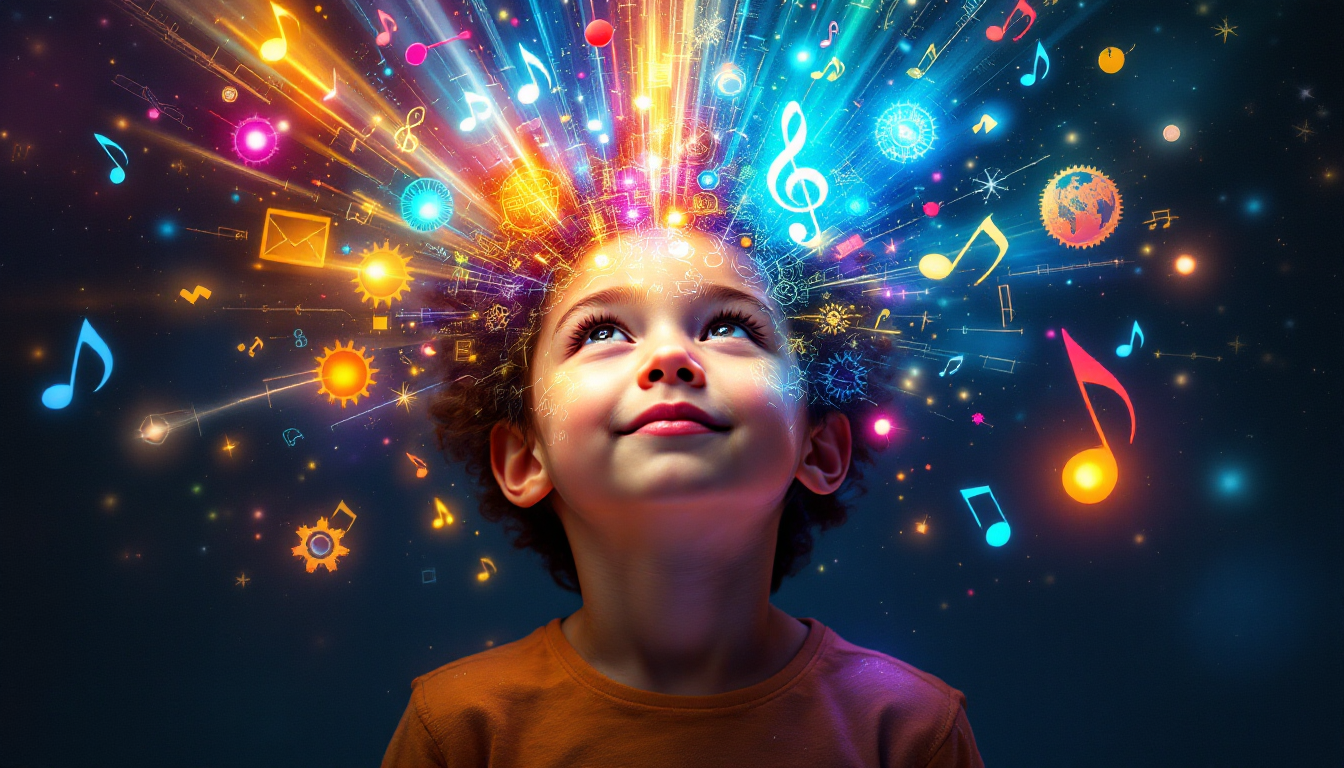
While the challenges associated with ADHD and Giftedness: Twice Exceptional Kids can be significant, it is absolutely vital to shift our focus to the incredible strengths and unique talents that these children possess. Too often, the narrative around 2e kids centers solely on their difficulties, overlooking the immense potential and remarkable gifts they bring to the world.
One of the most striking strengths of 2e individuals is their creativity and divergent thinking. Their minds often operate outside conventional boxes, allowing them to connect seemingly unrelated ideas and generate innovative solutions. Where others see limitations, 2e kids often see possibilities. This manifests in various ways:
- Originality: They often have unique perspectives and come up with truly original ideas, whether in art, writing, science, or problem-solving.
- Imagination: Their rich inner worlds can lead to vivid imaginations, fostering storytelling, artistic expression, and imaginative play.
- Inventiveness: They are often natural inventors, constantly seeking new ways to do things or create novel objects.
Another powerful asset is their intense curiosity and passion. When a 2e child becomes deeply interested in a subject, their hyperfocus (a characteristic often associated with ADHD) transforms into a profound ability to delve into complex topics with unparalleled dedication and depth. This can lead to:
- Deep Understanding: They can absorb and retain vast amounts of information on their chosen subjects.
- Advanced Problem-Solving: Their ability to analyze, synthesize, and think critically allows them to tackle challenging problems with sophisticated solutions.
- Resilience and Determination: When truly engaged, they can exhibit remarkable perseverance, often overcoming significant obstacles to achieve their goals.
Furthermore, many 2e kids possess:
- Exceptional Empathy: Their heightened sensitivity often translates into a deep understanding and compassion for others.
- A Keen Sense of Justice: They are often driven by a strong moral compass and a desire for fairness.
- Humor and Wit: Their quick minds often lead to a sharp sense of humor and clever observations.
Think of individuals throughout history and in contemporary society who have made significant contributions. Many brilliant minds, often exhibiting traits consistent with both giftedness and ADHD, have leveraged their unique cognitive profiles to achieve extraordinary things. For example, some historians and biographers have suggested that individuals like Leonardo da Vinci, a polymath known for his boundless curiosity and diverse interests, may have exhibited traits consistent with both giftedness and ADHD. Similarly, the rapid-fire thinking and innovative ideas of entrepreneurs like Richard Branson, who is open about his struggles with dyslexia and ADHD, showcase how neurodivergence can be a powerful engine for creativity and success. While these are retrospective interpretations and not clinical diagnoses, they serve as powerful anecdotes illustrating how a unique brain wiring can lead to exceptional achievements.
The journey of nurturing a 2e child is not about fixing what's "wrong," but about recognizing and cultivating their inherent strengths. By providing appropriate support for their challenges while simultaneously celebrating their unique talents, parents and educators can empower these children to embrace their differences and leverage them as superpowers. Encourage their passions, provide outlets for their creativity, and celebrate every small victory. These remarkable children have the potential to be truly transformative thinkers, innovators, and leaders.
Final Thoughts
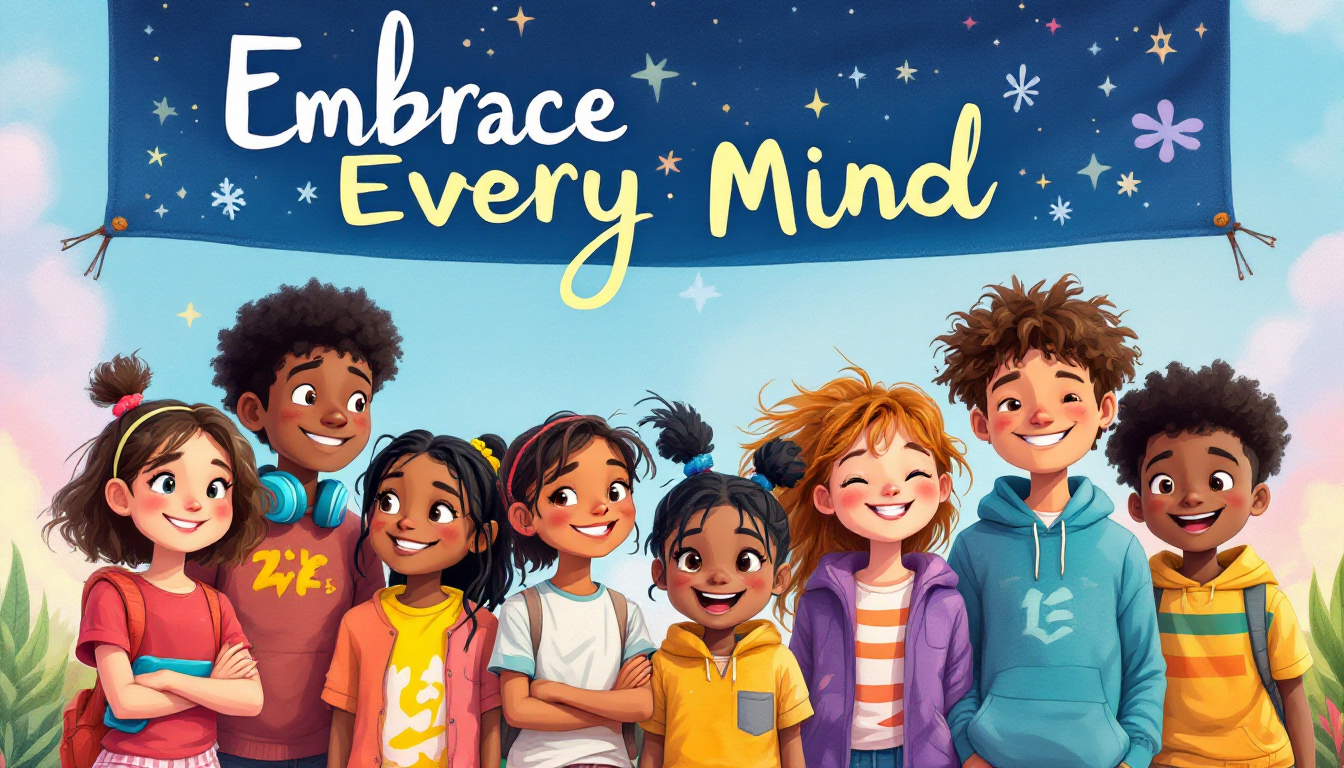
Understanding the intricate world of ADHD and Giftedness: Twice Exceptional Kids is a journey that requires patience, empathy, and a commitment to seeing the whole child. It's about recognizing that a child can be both brilliant and struggle profoundly, that their challenges are not a reflection of their intelligence, and that their unique neurodevelopmental profile is a source of both complexity and immense strength.
The importance of recognizing and addressing the dual needs of 2e children cannot be overstated. When we fail to identify both giftedness and ADHD, we risk misinterpreting behaviors, providing inadequate support, and ultimately, stifling a child's potential. Conversely, when we understand their unique blend of strengths and challenges, we can implement targeted strategies at home and school that allow them to thrive academically, emotionally, and socially.
We encourage you to continue learning, advocating for your child, and connecting with resources that can provide guidance and support. Explore articles on effective ADHD parenting strategies, delve deeper into executive functioning skills, and seek out communities of parents who share similar experiences.
If this article has resonated with you, please consider sharing it with other parents, educators, or anyone who might benefit from understanding the nuanced world of twice-exceptionality. Your insights and experiences can contribute to a more informed and supportive environment for these extraordinary children. Together, we can help neurodivergent gifted kids not just cope, but truly shine.
Ready to cultivate deeper, more meaningful connections in your life? The Bonding Health app is designed to help you do just that, offering tools and resources to enhance your well-being through stronger relationships. Whether you're looking to improve family dynamics, nurture friendships, or simply feel more connected in your daily life, our intuitive platform provides the guidance you need. Download the Bonding Health app today and start building a healthier, happier you, together.


